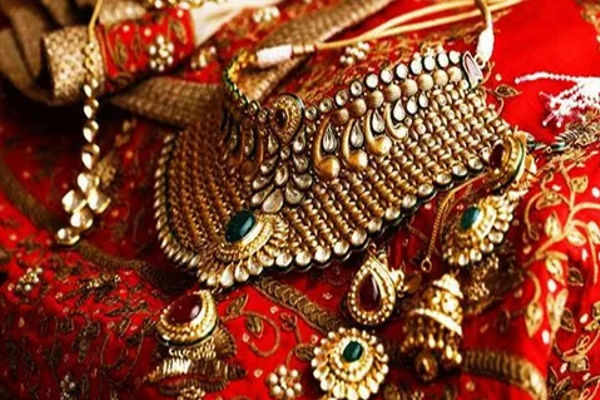Traditional Artificial Jewellery: The Charm of Heritage Without the Hefty Price
Jewellery has always played an essential role in cultural expression, especially in traditional ceremonies, weddings, and festivals. But in a world where precious metals and gemstones come with high price tags, Traditional Artificial Jewellery has emerged as a beloved alternative. Offering the same grandeur, elegance, and cultural richness as real ornaments—without the financial strain—this form of jewellery has carved a prominent space in both daily wear and special occasions.
What Is Traditional Artificial Jewellery?
Traditional artificial jewellery refers to imitation ornaments crafted to replicate the look and feel of real gold, silver, and gemstone pieces. These are usually made from base metals like copper, brass, or alloy and are plated with gold or silver finishes. Often adorned with artificial stones, glass beads, pearls, and enamel work, they are designed to reflect the styles and motifs rooted in various cultural heritages.
Despite being non-precious, these pieces offer remarkable detail, beauty, and sophistication, making them a favorite for weddings, religious festivals, and traditional celebrations.
Types of Traditional Artificial Jewellery
Here are some of the most popular forms of traditional imitation jewellery found across different regions:
1. Kundan Jewellery
Originating from the royal courts of Rajasthan and Gujarat, Kundan jewellery is known for its elaborate designs featuring glass stones set in gold-plated settings. Artificial Kundan sets are a bridal favorite, offering regal charm at an affordable price.
2. Polki Jewellery
Similar to Kundan but traditionally made with uncut diamonds, artificial Polki jewellery replicates the rustic yet luxurious aesthetic using faux diamonds and stones. It is a popular choice for weddings and grand celebrations.
3. Temple Jewellery
With roots in South India, temple jewellery features intricate carvings of deities, flowers, and traditional motifs. Artificial versions in oxidized or gold-plated finishes allow women to enjoy the divine beauty without the cost of real gold.
4. Meenakari Jewellery
Meenakari involves the art of coloring metal surfaces with enamel to create vivid, decorative designs. Artificial Meenakari jewellery brings this vibrant artistry to the masses in rings, bangles, and necklace sets.
5. Jadau Jewellery
Known for its meticulous setting of stones without using adhesives, Jadau pieces are replicated using artificial techniques that capture the same elegance. These are often seen in bridal trousseaus and festive collections.
Advantages of Traditional Artificial Jeweller
✅ Affordability
One of the biggest draws of artificial jewellery is its cost-effectiveness. You can enjoy luxurious, ornate designs without spending a fortune.
✅ Variety and Versatility
Available in countless styles, colors, and designs, artificial jewellery caters to a wide range of preferences. It complements traditional attire like sarees, lehengas, and salwar suits effortlessly.
✅ Lightweight and Comfortable
Unlike some heavy gold or silver pieces, artificial jewellery is generally more lightweight, making it easier to wear for long hours during functions and events.
✅ Safe for Travel
Wearing expensive real jewellery while traveling can be risky. Artificial alternatives offer peace of mind without compromising on appearance.
✅ Trend-Friendly
Artificial jewellery allows for quick adoption of fashion trends. Whether it’s a new Bollywood-inspired look or a trending bridal style, imitation jewellery is quick to follow suit.
Caring for Artificial Jewellery
To maintain the beauty and longevity of your traditional artificial jewellery:
- Store it in dry, airtight containers to avoid tarnishing.
- Keep away from moisture, perfumes, and chemicals.
- Clean gently with a soft, dry cloth after use.
- Avoid wearing in water (e.g., while bathing or swimming).
A Sustainable and Stylish Choice
As awareness of sustainability grows, many fashion-conscious women are turning to artificial jewellery as a more ethical and eco-friendly choice. It reduces the demand for precious metal mining and often supports local artisans and small businesses involved in handcrafted imitation jewellery.
Final Thoughts
Traditional artificial jewellery offers the perfect blend of cultural elegance and practical value. Whether you’re dressing up for a wedding, a religious ceremony, or a festive celebration, these stunning pieces allow you to embrace your heritage in style—without burning a hole in your pocket. Affordable, beautiful, and versatile, traditional imitation jewellery continues to be a timeless treasure for women of all ages.

